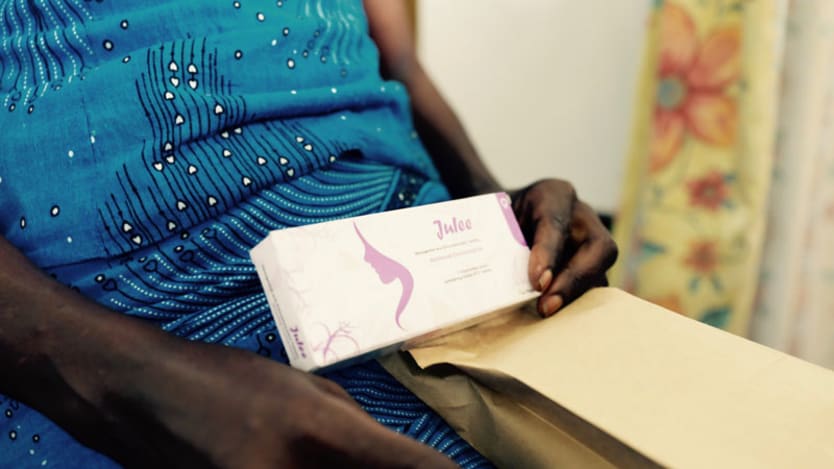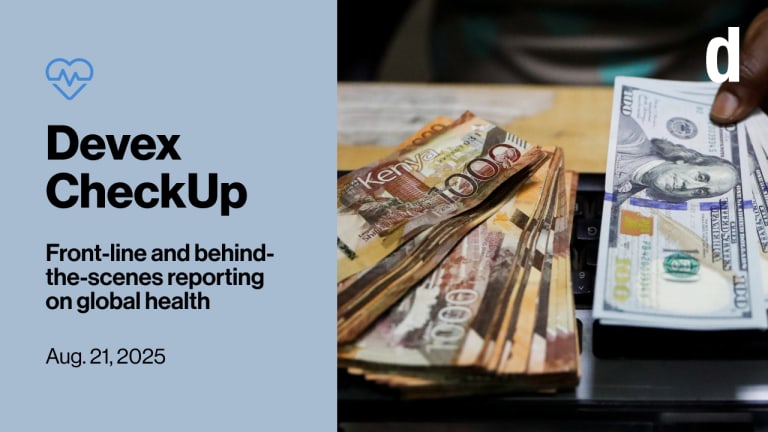
NAIROBI — This month, Family Health Options Kenya shuttered its clinic in Kitengela, Kenya. The clinic, which had operated for more than four years, was closed in response to funding cuts due to the “global gag rule.” FHOK, which is the country’s first and largest sexual and reproductive health organization, provided 3.1 million reproductive health services in 2016.
The gag rule, or Mexico City Policy, is a United States government policy that forbids foreign NGOs that receive U.S. global health aid from performing or promoting abortions — including providing counseling or referrals. The policy requires organizations to sign a statement pledging to this commitment.
Since U.S. President Donald Trump introduced an expanded version of the “global gag rule” after his inauguration in 2017, FHOK has been forced to eliminate its free outreach services, close two of its clinics, and lay off 18 staff members, all because of its refusal to sign the statement. About 98 percent of the services FHOK provides are not related to abortion.
One year on, full impact of 'global gag rule' begins to emerge
A year after the reinstatement of the "global gag rule" under United States President Donald Trump, family planning NGOs are beginning to take stock of their losses.
The organization has lost about $2.2 million in response to the rule, including $1.56 million in future funding due to FHOK’s inability to bid for U.S. funds. The remaining funds were from a U.S. President's Emergency Plan for AIDS Relief program that was terminated after the organization declined to sign onto the U.S. policy.
Devex spoke with Amos Simpano, director of clinical services at FHOK, about the Kitengela clinic closing and the impact the “global gag rule” has had on the organization’s ability to provide reproductive services in Kenya.
The conversation has been edited for length and clarity.
What types of services does FHOK provide?
We provide a comprehensive range of services, particularly in the area of sexual reproductive health. We provide cervical cancer screening, prevention therapy, HIV/AIDs services, as well as maternal, newborn, and child health services. We also provide services for men. We have both inpatient and outpatient facilities.
Who were you serving at the Kitengela clinic?
The clinic has been serving cash laborers. Kitengela is located in an area where there are a lot of industries. There are quite a number of factories and many low-income workers. These are the people who have been coming to our clinic. We also serve rural populations, primarily the pastoralist communities living in Kajiado County.
Because of the low wages of workers, there are quite a number of commercial sex workers. We reach out to provide them with family planning services. We provide them with condoms, reach out to those who are living with HIV, and provide them with antiretroviral treatment, as well as other care.
Why did your organization decide not to sign on to the “global gag rule?”
We are the pioneer organization of secure, reproductive health care in Kenya. We are the main organization that provides family planning services to women. Our existence revolves around this provision of services to women. If we decided to sign onto the “global gag rule,” then as an organization, we cease to play our role. Our mandate would end because we would not be allowed to talk about family planning.
What is the broader impact on your organization throughout Kenya?
The immediate impact for us as an organization, is the reduced funding. We have terminated all outreach services, in all of our facilities.
When we declined to sign onto the “global gag rule,” we lost some direct funding from PEPFAR. Therefore, we had to terminate all mobile outreach. Annually, these outreach services reached about 76,000 women.
We were also not able to continue engaging some of our specific target communities.
In the coastal region of Kenya — we closed a clinic there also. It was the first clinic to be closed. It was specifically reaching out to communities to break barriers on social, cultural, and religious issues in the coastal region, which is predominantly inhabited by Muslim communities. We were able to successfully collaborate and have dialogue with Muslim leaders — the imams — about family planning.
We were able to agree to change cultural and religious perceptions, which is that Muslim women are not supposed to go for family planning services because of the holy Quran. When we engaged the religious leaders, we were able to break through that barrier. Those women were freely coming to access those services. That was another blow — because we could not continue engaging with these communities.
The other thing is that because of reduced funding, even the provision of antiretroviral treatment has been affected. When women come for family planning, we do an integration of services. Now that we are not able to provide outreach services for family planning, it means we are also not able to talk about HIV.
“ Kitengela is located in an area where there are a lot of industries. There are quite a number of factories and many low-income workers. These are the people who have been coming to our clinic.”
—How do you expect the closure of this clinic to impact the populations in Kitengela?
These populations are basically going to be stranded.
In Kitengela we had a very active clinic, where women would come for services — especially after working hours. They would come in on their way home from work. Now they don’t have anywhere to go. We expect in that region there will be an increase in unwanted pregnancies, which will lead to unsafe abortions. This, of course, causes maternal deaths.
Are there any plans moving forward on how health practitioners in this area will reach the populations in Kitengela?
We have a government facility in Kitengela. But again, these people are low-income people. They need transport funds to reach those facilities, which they don’t have. That’s why our clinic came in handy. It was located within the industrial area, where these people could just walk to the clinic, without paying any fees. It’s going to be very difficult for them to reach the government facilities because they don’t have transportation.
What will the staff at the Kitengela clinic do now?
We lost seven staff — very competent people. All of them are at home now. That is going to affect their families because they are no longer on any salary. Including the Kitengela clinic, we lost about 18 staff across Kenya because of the “global gag rule.”
How do you think closures like this will impact health services as a whole in Kenya?
In the last 10 years, before the “global gag rule” came into effect, Kenya had managed to improve its indicators.
We had managed to improve our contraceptive prevalence rates from about 46 percent to 51 percent. We were able to reduce our HIV prevalence rate from around 7 percent to about 6 percent. For maternal mortality, we were able to reduce from 488 deaths per 100,000 live births to 362.
We made tremendous improvements in the last decade when we had sufficient funding to provide services to the population. Now, these indicators are going to reverse, or just stall.








